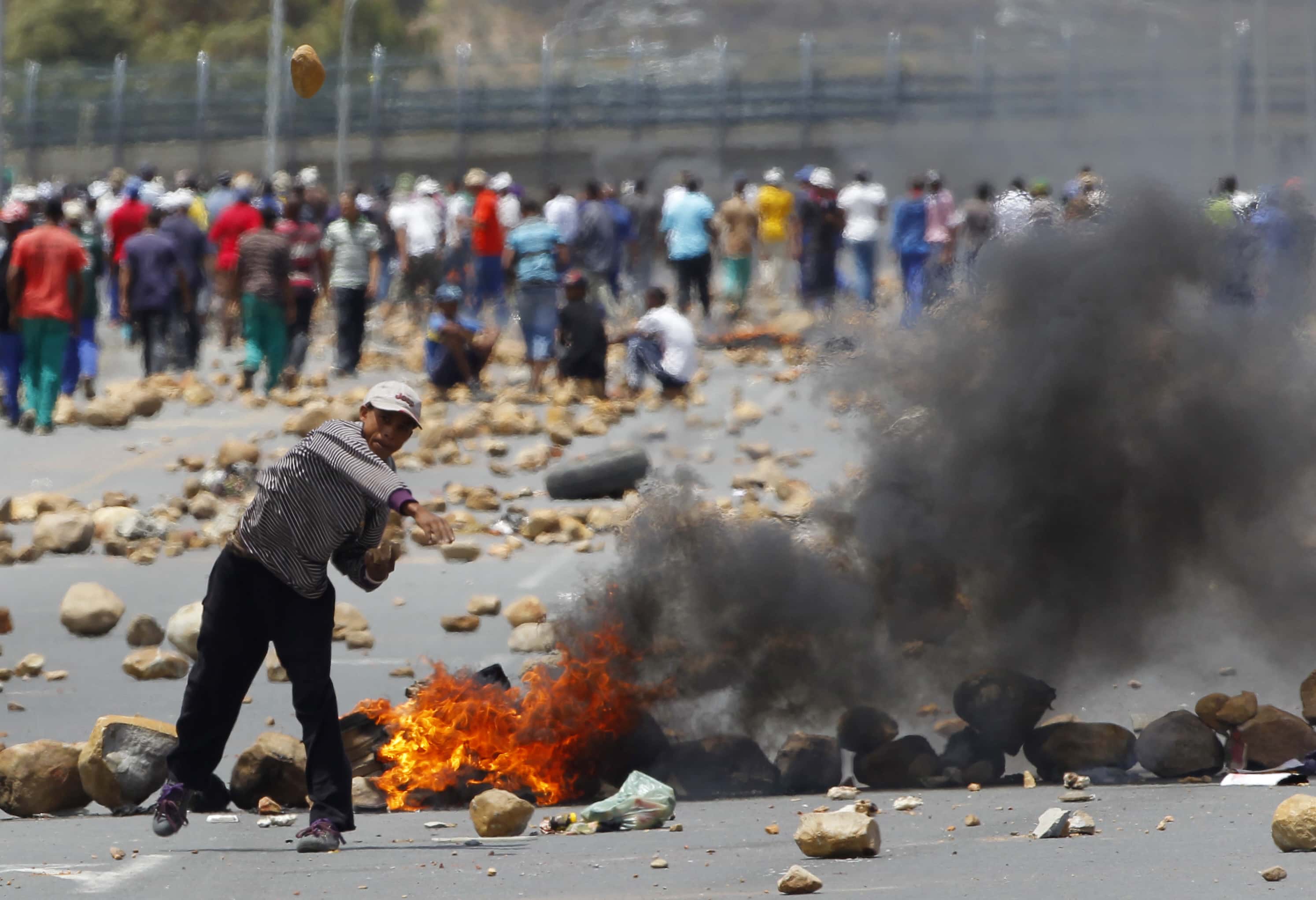Zolile Menzelwa was attacked on 3 March and told to stop writing "about the mayor." The incident follows a series of attacks on journalists during their coverage of a farm workers' strike in January.
(MISA/IFEX) – The South African National Editors’ Forum (Sanef) has condemned – “in the strongest terms” – what it perceives to be politically-motivated attacks on Zolile Menzelwa, a reporter with the weekly The Rep. The newspaper is published in Queenstown, located in South Africa’s Eastern Cape province.
In a statement, Sanef said the journalist had “suffered injuries to his face and ankle after two assailants knocked him down, stood on his chest and dropped a brick on his ankle – leaving him bruised but not seriously hurt.”
The incident reportedly occurred on Sunday, 3 March 2013 as Menzelwa was walking home.
The journalist was warned to stop writing “about the mayor” but the Sanef statement and other reports say both Menzelwa and his editor, Sonja Raasch, are not sure which mayor was being referred to as there is “a recently ousted mayor, who is linked to about R7 million (approximately US$765,000) in missing funds, [and] his replacement, who has promised to tackle corruption.”
No charge has yet been laid as the journalist could not identify his attackers.
Meanwhile, the Sanef statement also reported that in Alice – also in the Eastern Cape province – a senior police officer threatened to “blow up” a journalist who was covering students protests at the University of Fort Hare.
The senior police officer, identified as Captain Godulawana, is said to have threatened photojournalist, Theo Jeptha, who works for Foto24 by saying to him, “I will blow you up.” The statement says Captain Godulawana “ripped Jeptha’s camera from his hands, saying he did not want to be photographed.”
South African journalists covering protest action have, in recent times, increasingly come under [threat] from both the protestors and police officers.
Striking farm workers in De Doorns, in the Western Cape province, on Wednesday, 9 January 2013 attacked some journalists who were covering their strike action. Journalists Xolani Koyana, Aw Cheng Wei (both from the Cape Times newspaper) and Henk Kruger (from the Cape Argus newspaper) were injured when the strike turned violent, despite visible police presence in the area.
Five days later, on Monday, 14 January 2013 some of the striking farm workers again attacked three journalists from the public broadcaster, the South African Broadcasting Corporation (SABC), who were covering their strike action.
According to a media report filed by one of the journalists, Nomawethu Solwandle, and broadcast on several SABC news bulletins, a car in which the three journalists were traveling was stoned and had its rear window broken. No injuries were reported.
Within the same month, another crew from the SABC came under attack while covering protest action in Sasolburg, (Free State province), where protestors were reportedly unhappy with proposed municipality mergers. The protests, which went on for over a week, left four people dead and dozens arrested.
SABC journalists, Njanji Chauke and Noma Bolani spoke of the threats they faced in Sasolburg during an interview on Morning Live, a television breakfast show broadcast on SABC 2. The interview aired live on Thursday, 24 January 2013.
Speaking to the Media Institute of Southern Africa (MISA) later, Chauke also confirmed that cars belonging to other journalists had been pelted with stones and one of the SABC camerapersons had been punched. None of the journalists sustained serious injuries.
“Together,” Sanef said in the statement, “these incidents indicate an uncalled for hostility towards the media and journalists who are carrying out their professional duties in keeping the public informed.”
In condemning the attacks on South African journalists covering protests, MISA advised journalists covering such action to exercise extreme caution. The organisation further called upon those coordinating the strike/protest action to respect the duties of journalists and to guarantee their safety.



